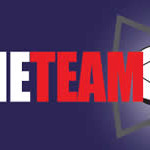Kenya Coffee Bar Offers More Than Coffee: Youth and Officials Join with The Team to Build Peace in Kenya’s Rift Valley
The following post is from Deborah Jones, Executive Producer of Common Ground Productions (the media arm of SFCG). Deborah oversees the production of The Team and SFCG’s many other TV and radio programs around the world. Thank you to Deborah for this interesting update from Kenya.
“We have realized that we need to be partners, not rulers.” Michael Kioni, Senior District Officer and the Acting District Commissioner of Naivasha, Kenya
The partners to which Commissioner Kioni alludes are his youth constituents who have formed a coalition, The Coffee Bar, consisting of 40 community organizations and government partners – including the police – which started as a direct result of a peacebuilding program called The Team.
Created and produced by Kenyans, The Team is broadcast on Citizen TV and on national and vernacular radio stations. This episodic drama was created in response to the devastating post-election violence of 2008. The series shows how members of a fictional football team learn to overcome their tribal, ethnic, and economic divisions. The Team is carried out in Africa, Asia and the Middle East by Search for Common Ground. In Kenya, the series is produced by SFCG’s partner, the Nairobi-based Media Focus on Africa.
However, The Team is much more than a popular serial. Search for Common Ground and Media Focus on Africa launched an ambitious mobile cinema/facilitated dialogue project in 8 areas most impacted by the post-election violence just as the series launched in 2009. The Naviasha slum called Karagita was the starting point of this project. It is here that local youth organizers Peter Kairie and Virgina Waimatha convinced 70 youth leaders to watch The Team together to discuss themes such as tribalism, corruption and reconciliation.
This is not radical until one learns that these 70 youth represented warring tribes who had been at one another with pangas during the post-election violence. Karagita was particularly hard hit. Early dialogue sessions led by Peter and Virigina proved difficult as participants were still afraid of their neighbors. Coffee bar organizer, Charles Omwanro says, “After the post-election violence, there were the Kikuyus and the Luos – no unity. After we watched The Team, it changed. We started developing trust… again and had the courage to talk to one another.”
Few officials attended screenings early on. Indeed, the community was as splintered between citizens and their local representatives as it was down tribal lines. As one woman put it, “I had a negative opinion of government. Now…. we work very well together.”
Commissioner Kioni’s enthusiasm for the Coffee Bar is echoed by local councilor Jonathan Warothe. “We [leaders and youth] complement each other.” In a recent meeting, Media Focus on Africa’s Mburugu Gikunda asked how the change happened. Charles Omwanro explained, “The Coffee Bar Initiative came up after youth participated in The Team —we wanted to be change makers…The coffee bar has helped youth connect with government ministries…even the youth send representatives to meet with government officials. It has been a success because now there is dialogue. “
Naivasha is one of 8 mobile cinema/dialogue projects to see this kind of transformative movement take hold. From the original 500+ youths in 8 fragile locations now close to 60,000 Kenyans participate in a group like the Coffee Bar. All credit The Team for the inspiration.










